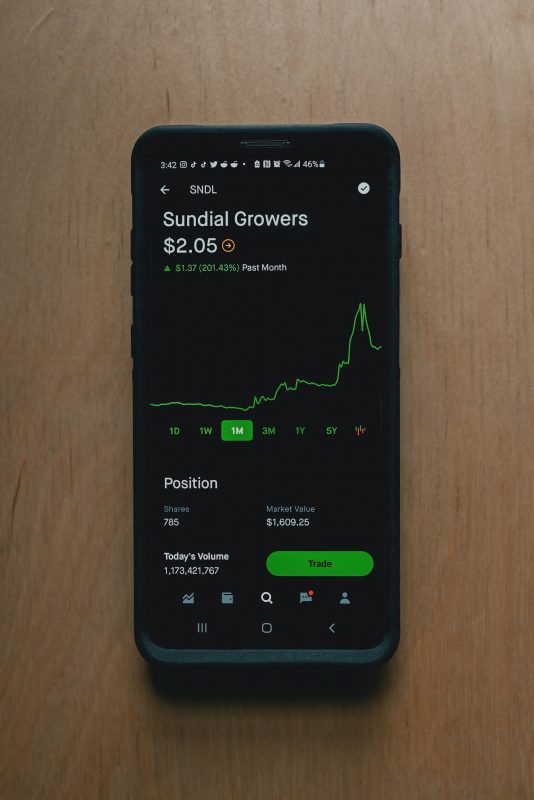Making the decision between a Defined Contribution Pension and a Defined Benefit Pension can be difficult. Both have their pros and cons, and it can be tough to decide which is right for you.
In this personal finance guide, we will take a look at both options and compare them side-by-side. We will also discuss the advantages and disadvantages of each so that you can make an informed decision about your future!
Defined Contribution Pension Vs Defined Benefit Table of Contents
What is a Defined Contribution Pension?
What is The Difference Between a Defined Contribution Pension and a Defined Benefit?
What Are The Different Types of Defined Contribution Pension?
What Are The Different Types of Defined Benefits?
What Are The Advantages of a Defined Contribution Pension?
What Are The Advantages of a Defined Benefit?
What Are The Disadvantages of Defined Contribution Pension?
What Are The Disadvantages of Defined Benefit?
What Are Some Alternatives to Using a Defined Contribution Pension or a Defined Benefit?
What Are Some Tips For Using a Defined Contribution Pension?
What is a Defined Contribution Pension?
A defined contribution pension is a retirement savings plan where the employee and/or employer make regular contributions. The size of the pension pot will depend on how much has been contributed and how well the investments have performed.
When you retire, you can use your pension pot to buy an annuity that will provide you with a regular income for life, or you can take a lump sum or income drawdown.
What is a Defined Benefit?
A defined benefit pension, also known as a final salary pension, is a retirement savings plan where the size of your pension pot is determined by how long you have been in the scheme and your salary when you retire.
Your employer will usually make contributions towards your pension, and in some cases, you may be able to make voluntary contributions.
What is The Difference Between a Defined Contribution Pension and a Defined Benefit?
The difference between a defined contribution pension and a defined benefit pension is that with a defined contribution, you or your employer pay into the plan while with a defined benefit, your payments are based on how much you’ve earned.
With a defined contribution arrangement, your benefits will depend on how much has been contributed and the investment returns achieved. In contrast, a defined benefit pension promises a retirement income based on your salary and length of service.
What Are The Different Types of Defined Contribution Pension?
There are two types of defined contribution pension:
Occupational Pension
An occupational pension is set up by your employer.
Personal Pension
A personal pension is one you set up yourself.
What Are The Different Types of Defined Benefits?
There are two types of defined benefits:
Final Salary Scheme
A Final salary scheme is where your pension is based on your salary when you retire.
Career Average Scheme
A career average scheme is where your pension is based on an average of your earnings during your working life.
What Are The Advantages of a Defined Contribution Pension?
When it comes to a defined contribution pension, there are a few advantages that you should be aware of. Firstly, with this type of pension, you will have far more control over how your money is invested. This means that you can tailor your investments to suit your own personal circumstances and goals.
Another advantage of a defined contribution pension is that you will not be subject to the same level of financial risk as with a defined benefit pension. This is because the amount of money that you ultimately receive from your pension pot will depend entirely on how well your investments perform.
Of course, one of the biggest advantages of a defined contribution pension is that you can usually take your pension pot with you if you move jobs. This is not the case with a defined benefit pension, which would usually be paid out by your former employer.
What Are The Advantages of a Defined Benefit?
The advantages of a defined benefit are that you have a guaranteed income in retirement and that your employer takes on the investment risk. There is also the potential for a higher payout than with a defined contribution pension.
What Are The Disadvantages of Defined Contribution Pension?
There are a few disadvantages of a defined contribution pension that you should be aware of. Firstly, your retirement income is dependent on how much you and your employer have contributed, and how well the investments have performed. This means that there is more risk involved than with a defined benefit pension, where your income is guaranteed.
Another downside of a defined contribution pension is that you may not be able to access your money until you reach retirement age. This can be a problem if you need to retire early due to ill health, as you will not be able to access your pension pot.
Finally, there is the issue of fees. With a defined contribution pension, you will usually be charged fees by the pension provider, which can eat into your pension pot.
What Are The Disadvantages of Defined Benefit?
The main disadvantage of a defined benefit plan is that they are becoming increasingly rare.
In fact, according to the Pension Rights Center, only 13 percent of private sector workers had access to a defined benefit plan in 2016. This decline is largely due to the increased costs associated with these plans. For employers, these plans can be very expensive to maintain.
Another disadvantage of defined benefit plans is that they often do not keep up with inflation. This can be a major problem for retirees who are relying on these benefits to cover their living expenses. Additionally, these plans typically have early withdrawal penalties which can make it difficult for people to access their money if they need it before retirement.
Finally, defined benefit plans often have vesting requirements which can make it difficult for people to receive their benefits if they leave their job before they are fully vested.
So, Which One Should You Use?
This is a difficult question to answer, as it depends on your specific circumstances.
If you are young and have many years until retirement, a defined contribution pension may be the best option. This is because you will have more time to make up for any fluctuations in the stock market.
However, if you are closer to retirement age, a defined benefit pension may be a better option. This is because you will not have to worry about the stock market crashing just before you retire.
The bottom line is that you need to carefully consider your options and make a decision based on your specific circumstances. Both defined contribution and defined benefit pensions have their advantages and disadvantages, so it is important to understand both before making a decision.
What Are Some Alternatives to Using a Defined Contribution Pension or a Defined Benefit?
There are a few alternatives to using a defined contribution pension or a defined benefit.
One option is to use an annuity, which is basically an insurance policy that pays out a set amount of money each month for the rest of your life.
Another option is to invest in stocks, bonds, and other securities on your own. Finally, you could simply save up money in a savings account or a retirement account like a 401(k).
What Are Some Tips For Using a Defined Contribution Pension?
When it comes to using a defined contribution pension, there are a few things you should keep in mind. First and foremost, you need to make sure that you're contributing enough money to your pension pot on a regular basis. The amount you need to contribute will depend on how much money you want to receive when you retire.
Secondly, you need to make sure that your investment strategy is on point. This means you should be diversifying your investments and making sure that you're not putting all of your eggs in one basket.
Lastly, you need to keep an eye on the fees charged by your pension provider. Many providers will charge annual management fees, which can eat into your pension pot over time.
What Are Some Tips For Using a Defined Benefit?
When you're planning your retirement, there are a lot of things to think about. One important decision is whether to choose a defined benefit or a defined contribution pension. Here's a quick overview of each option:
A defined benefit pension plan gives you a set income in retirement, regardless of how much money you have saved up. The amount you receive is determined by a formula that takes into account your years of service and your salary.
A defined contribution pension plan, on the other hand, is like a savings account. You or your employer contribute money to the account, and that money grows over time. When you retire, you can withdraw as much or as little as you want, subject to income tax.













